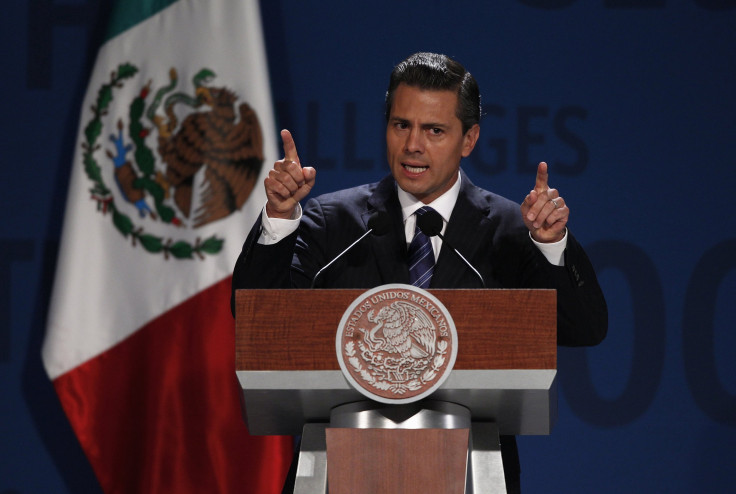
Mexico’s executive branch, headed by president Enrique Peña Nieto, has handed down a series of secondary laws following up on last year’s historic energy reform to Mexico’s Congress to be considered for a vote. The initiative, which would modify 13 existing laws and create eight new ones, seeks to establish the rules by which private firms would extract and sell Mexican energy resources, which for over 75 years have been under state control. For much of the public, state ownership of energy resources is a raw nerve, having come to serve as a symbol of Mexican sovereignty after president Lázaro Cárdenas expropriated Standard Oil and Royal Dutch Shell’s assets in 1938 following a labor dispute.
El Pais reports that during a press conference on Wednesday morning, the secretaries of Mexico’s tax and energy agencies said the proposal would keep energy resources under the charge of the state while simultaneously opening them to extraction and sales by private and foreign firms. The one exception is the sale of gasoline to the public; the opening of that market to private investment will come gradually and in tune with the growth of accompanying infrastructure, the secretaries said.
Energy secretary Pedro Joaquín Coldwell added that bidding over contracts awarded by the state allowing companies access to energy reserves would be made public on the internet, while a new agency designed to oversee the industry’s impact on the environment would be created. Many of the reform’s critics fear that deals between the government and foreign firms would be ripe for corruption. That concern was fourth on a list of questions directed at the president this week by filmmaker Alfonso Cuarón. “In a country in which the law is so flimsy (and sometimes non-existent),” he asked, “how will you avoid large-scale corruption?”
© 2025 Latin Times. All rights reserved. Do not reproduce without permission.





